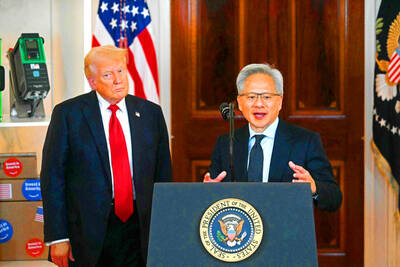Facebook Inc’s initial public offering (IPO), plagued by trading errors and a share price drop of 16 percent, will push more individual investors out of a stock market that they already distrust after the financial crisis.
“This is clearly the latest in a long string of events that is eviscerating the confidence investors have in the market,” said Andrew Stoltmann, a Chicago attorney who represents retail investors. “The perception is Wall Street jiggered this IPO so the underwriters made money, Facebook executives made money and the small investor got left holding the bag.”
Individual buyers’ willingness to venture into stocks was undercut by difficulties in executing trades on the first day of trading on May 18, Facebook’s subsequent decline and questions as to whether the firm and underwriters selectively disclosed material and non-public information.
“If you have a lot of angry people out there, they’re going to express their anger in different ways,” said Steve Sosnick, equity risk manager for Timber Hill LLC, the market-making unit of Connecticut-based Interactive Brokers Group Inc. “One of them may be with their feet.”
The IPO produced the worst five-day return among the largest US deals of the past decade. The 13 percent decline through Thursday exceeded the 10 percent drop by MF Global Holdings Inc in its first five sessions. Visa Inc did best among the biggest deals, rising 45 percent.
Patricia Arroyo, 53, a psychologist and executive coach in Boston who manages her own investments, said: “What shakes my investor confidence more than the glitches is to see all the institutional investors, insiders and favored clients get all the advantages in these situations.”
After Facebook said on May 9 that growth in advertising had failed to keep up with user gains, analysts at some banks underwriting the deal cut their earnings estimates, people familiar with the process said. The new estimates were relayed to institutional investors.
US Federal securities regulators and the US Senate’s banking committee have said they will or may review the Facebook offering. Buyers of the stock have sued Facebook, the sale’s underwriters and NASDAQ OMX Group Inc, the exchange handling the listing. New York-based NASDAQ was overwhelmed by order cancelations and trade confirmations were delayed on the first day of trading.
Brokerages whose customers had trouble executing Facebook trades, including Boston-based Fidelity Investments and Charles Schwab Corp, said they are trying to resolve complaints.
“Fidelity senior management has been working with regulators, market makers and NASDAQ to represent all of our customers’ trading issues from May 18 and we will continue to do so in order to persuade NASDAQ to mitigate the impact on our customers,” Stephen Austin, a spokesman at Fidelity, said in a phone interview.
Despite trading problems and losses, many investors who have already purchased the stock are continuing to hold on, said John Dominic, vice president of trading for TradeKing, an online broker based in Fort Lauderdale, Florida.
“Most are probably taking a wait-and-see approach,” Dominic said.

Taiwan Semiconductor Manufacturing Co (TSMC, 台積電) last week recorded an increase in the number of shareholders to the highest in almost eight months, despite its share price falling 3.38 percent from the previous week, Taiwan Stock Exchange data released on Saturday showed. As of Friday, TSMC had 1.88 million shareholders, the most since the week of April 25 and an increase of 31,870 from the previous week, the data showed. The number of shareholders jumped despite a drop of NT$50 (US$1.59), or 3.38 percent, in TSMC’s share price from a week earlier to NT$1,430, as investors took profits from their earlier gains

AI TALENT: No financial details were released about the deal, in which top Groq executives, including its CEO, would join Nvidia to help advance the technology Nvidia Corp has agreed to a licensing deal with artificial intelligence (AI) start-up Groq, furthering its investments in companies connected to the AI boom and gaining the right to add a new type of technology to its products. The world’s largest publicly traded company has paid for the right to use Groq’s technology and is to integrate its chip design into future products. Some of the start-up’s executives are leaving to join Nvidia to help with that effort, the companies said. Groq would continue as an independent company with a new chief executive, it said on Wednesday in a post on its Web

CHINA RIVAL: The chips are positioned to compete with Nvidia’s Hopper and Blackwell products and would enable clusters connecting more than 100,000 chips Moore Threads Technology Co (摩爾線程) introduced a new generation of chips aimed at reducing artificial intelligence (AI) developers’ dependence on Nvidia Corp’s hardware, just weeks after pulling off one of the most successful Chinese initial public offerings (IPOs) in years. “These products will significantly enhance world-class computing speed and capabilities that all developers aspire to,” Moore Threads CEO Zhang Jianzhong (張建中), a former Nvidia executive, said on Saturday at a company event in Beijing. “We hope they can meet the needs of more developers in China so that you no longer need to wait for advanced foreign products.” Chinese chipmakers are in

POLICY REVERSAL: The decision to allow sales of Nvidia’s H200 chips to China came after years of tightening controls and has drawn objections among some Republicans US House Republicans are calling for arms-sale-style congressional oversight of artificial intelligence (AI) chip exports as US President Donald Trump’s administration moves to approve licenses for Nvidia Corp to ship its H200 processor to China. US Representative Brian Mast, the Republican chairman of the US House Committee on Foreign Affairs, which oversees export controls, on Friday introduced a bill dubbed the AI Overwatch Act that would require the US Congress to be notified of AI chips sales to adversaries. Any processors equal to or higher in capabilities than Nvidia’s H20 would be subject to oversight, the draft bill says. Lawmakers would have